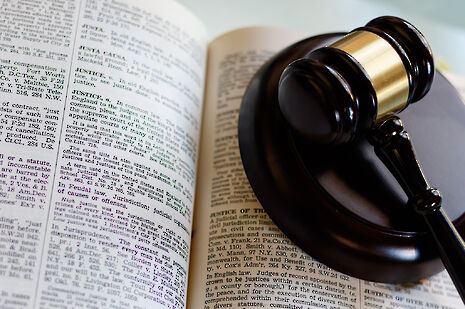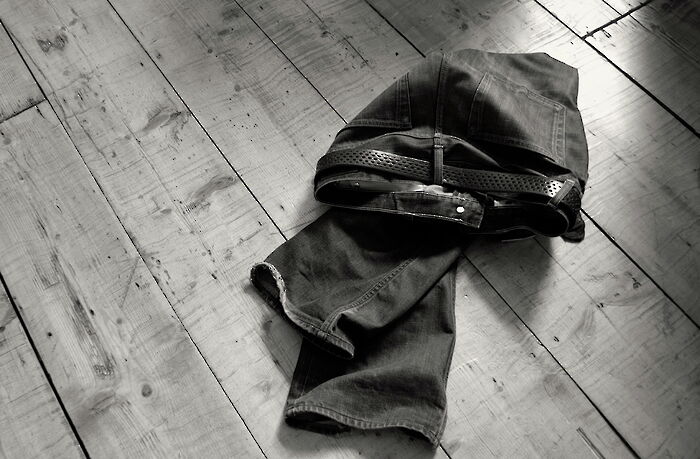‘But I didn’t scream no… so does it really count?’
Media narratives and differing definitions can make victims doubt the legitimacy of their ordeals, writes our anonymous columnist
Content warning: the following contains discussion of depictions of rape, different forms of rape, and rape legislation.

We all know what rape looks like right? It’s being grabbed by a stranger down a dark alley and being brutally attacked as you struggle and scream. You may not consciously think it, but dialogue around rape culture and media representations of the crime (or lack thereof) create this image of an ‘archetypal’ rape, making it harder to recognise real rape when you come across it in the wild.
The critically-acclaimed Elle, a 2016 French psychological thriller, is a good case in point. The film is about Michèle Leblanc, a smart and successful woman who is raped at the start of the film. The rape itself is a conglomeration of stereotypes. No context is given: it cuts to a man in black (wearing a balaclava) and a woman on the floor, surrounded by broken glass. He is unknown; the act itself is violent; she is shown to be sophisticated by her nice clothes and the classical music playing. This is the kind of rape we like to talk about, because it is a neat narrative of evil stranger randomly attacking an innocent victim. After looking melancholy for a moment, she stands and begins to clear up the mess.
“There is a homogeny in the representations of rape presented to us”
While the rest of the film is more complex in its development and exploration of the rape, the image of the man in the balaclava sticks. We need more diversity of narrative: rape exists in many different contexts, in many different forms – but around 90 per cent of those who are raped know the perpetrator prior to the offence. Male rape is an often-neglected issue: I commend the BBC for their recent documentary Male Rape: Breaking the Silence. Sexual violence disproportionately affects transgender people, and affects different ethnicities in different ways – but these often aren’t the stories we hear. Instead, there is a homogeny in the representations of rape presented to us.
We must remember also that there are certain kinds of privilege enabling people to tell their stories, in terms of how their communities will respond, their subsequent relationship with the perpetrator, and the platform which is given to their voice. These factors all contribute to the stories we hear, and the impression we therefore form of what rape ‘is’.
What this results in is self-doubt about applying the label rape to define your own experiences. I used the term rape aloud for the first time around two weeks after the incident, and slowly then began to clarify to people who knew I’d been sexually assaulted (a broader term) what I actually meant. From their position of exterior objectivity, most of them had already understood it as rape.
“It gets hard to keep up the self-conviction, to validate your own experiences”
No one warns you about this. You can’t help but feel that you’re just mysteriously supposed to know that you’ve been raped, and if there’s a seed of doubt or a struggle to apply the term in your mind then you begin to feel fraudulent, invalid. ‘But I didn’t scream no and shove him off me,’ that insidious voice inside my head might say, ‘so does it really count?’. This results in a pretty shit thought-loop: ‘I’m overreacting,’ I tell myself, every so often, ‘what happened wasn’t that bad’. To remind myself that this isn’t the case I have to fish the memory back out again and re-examine it — prodding at the scars to see if they still bleed.
The problem is compounded by the fact that most of the time there’s no record or memory of what happened outside of your own, and that of the perpetrator’s. If, as I was, you were drunk at the time, or if, like I do, you don’t want to remember the traumatic experience in its totality, it gets hard to keep up the self-conviction, to validate your own experiences.
I think the doubt is in part a defence mechanism. In telling the story of when she was raped, Mary Beard acknowledges the way in which she’s changed her story to suit different audiences, creating “other interpretations of what went on, which coexist – and compete”. One of these she describes as a slide from ‘rape’ to ‘seduction’, enabling her to claim that “the triumph was my own”.
I got angry when I first read this because I felt it strayed into rape denial, but I’ve come to see these kinds of efforts to tell the story in a different way instead as an attempt to forget or to rewrite one’s own past. Maybe, I think, if I can tell myself I consented then I can stop thinking of him as a person who wanted to hurt me. Maybe, I think, if I can convince myself that it somehow doesn’t merit the label rape I can stop feeling so upset about it.
Rape itself is a curiously ambiguous term, by virtue of the fact it is largely conceived of as a crime, and therefore tied to its legal definition – which is in turn a product of culture. Even the UK and US define rape differently: in the UK, rape is defined by penile penetration; across the pond, state legislation is not uniform but the FBI’s definition is of “penetration, no matter how slight, of the vagina or anus with any body part or object, or oral penetration by a sex organ of another person”.
Against this background, no wonder it takes survivors time to process what has happened to them and adopt the label rape. For me, though, there’s been something empowering in claiming the term: it has become a way of validating my experience and identifying with a broader community
 News / Judge Business School advisor resigns over Epstein and Andrew links18 February 2026
News / Judge Business School advisor resigns over Epstein and Andrew links18 February 2026 News / Hundreds of Cambridge academics demand vote on fate of vet course20 February 2026
News / Hundreds of Cambridge academics demand vote on fate of vet course20 February 2026 News / Gov grants £36m to Cambridge supercomputer17 February 2026
News / Gov grants £36m to Cambridge supercomputer17 February 2026 News / CUCA members attend Reform rally in London20 February 2026
News / CUCA members attend Reform rally in London20 February 2026 News / Union speakers condemn ‘hateful’ Katie Hopkins speech14 February 2026
News / Union speakers condemn ‘hateful’ Katie Hopkins speech14 February 2026










